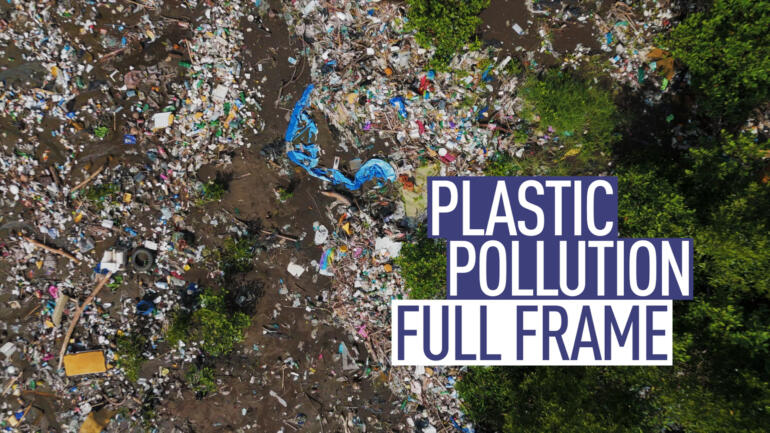Today, the world is producing twice as much plastic waste as it was two decades ago. Plastics take anywhere from 20 to 500 years to decompose. According to the United Nations, only about 9 percent of plastic in the world is recycled.
Tackling microplastics
Jesse Meiller is a marine ecologist and environmental toxicologist who studies microplastics, tiny bits of plastic that have been found everywhere, from the bottom of the ocean to inside human blood.
“Microplastics are made from almost everything that we use everyday that is plastic. …They’re ubiquitous because they’re being shed from so many different types of plastic,” said Meiller, a professor at Georgetown University’s Earth Commons Institute.
Meiller takes her students into the field to understand how microplastics are affecting waterways in the Washington, D.C. region, especially in the Potomac and Anacostia Rivers.
“Urban rivers tend to be the heavier load of the plastics that are eventually going to enter the oceans,” she said.
Meiller said single-use plastics are a big contributor to the plastic problem. From bags to water bottles, individuals can take action by eliminating single-use plastics in their lives.
“Our individual choices make a difference. We need to carry that forward though, and affect change at higher levels as well in order to have systemic change,” Meiller said.
Wanda- Intercepting Trash in Panama
Panama City’s garbage collection is irregular and waste often sits waiting to be picked up. And in many neighborhoods people make informal landfills or pile it up near the rivers. When the rains come, it all washes down the stream towards the coast.
The Juan Diaz river in Panama City has long been one of the most contaminated waterways in the region. But an ambitious new project is trying to clean up the water and save Latin America from the plague of ocean plastics.
Wanda is a private effort by an NGO called Marea Verde, meaning Green Wave. And it’s working.
Wanda intercepts trash so it doesn’t end up in the ocean, bringing attention to the amount of waste that’s being disposed of incorrectly and creating increasing environmental awareness amongst the community.
 CGTN America
CGTN America
